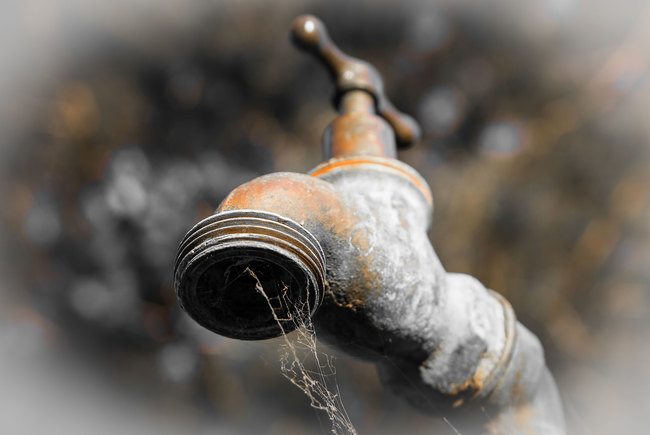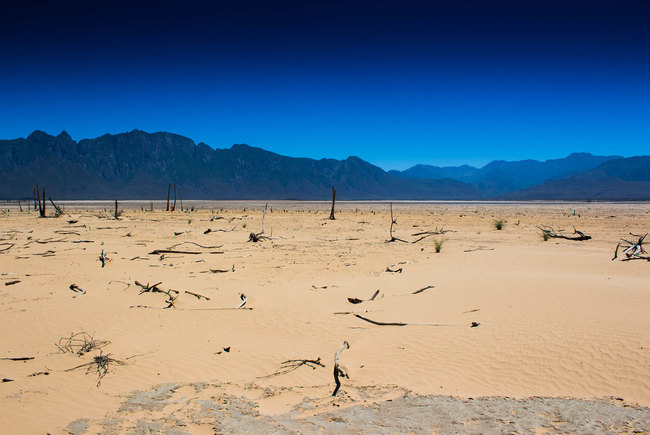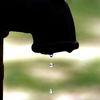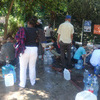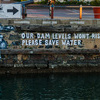Calls to ease water restrictions premature
10 July 2018 | Story Kevin Winter. Photo Danie van der Merwe. Read time 8 min.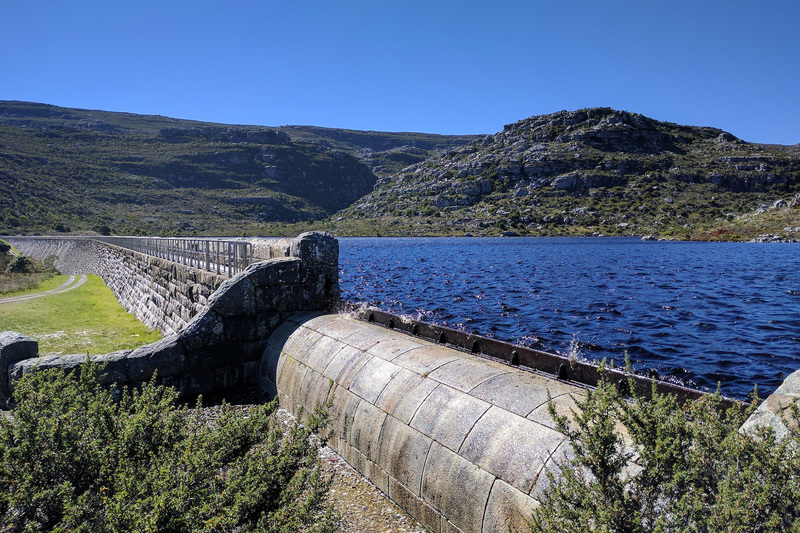
Calls to ease the City of Cape Town’s water restrictions are premature, with the next six to eight weeks of winter rainfall being crucial, says Dr Kevin Winter of the University of Cape Town’s (UCT) Future Water Institute. Instead, at only halfway through the winter rainfall season, this is a time for patience and prudence.
According to Winter, three main factors are commonly cited in respect of avoiding Day Zero in the city:
- The exceptional ability of citizens to reduce water demand via interventions such as water-saving devices and behaviour change.
- Improvement in the ability of city authorities to manage their own water resources, including a real-time pressure management system and information management.
- A welcome period of above average rainfall in parts of the province that has dramatically increased the volume of stored water in the dams from less than 20% in mid-April, to 53% in the first week of July.
“However, calls to immediately ease the city’s water restrictions remain premature, with plenty of uncertainly ahead in the months to October, which marks the end of the hydrological year. The next six to eight weeks of rainfall are likely to be crucial,” said Winter.
Uncertainty ahead
It is not unusual to see between 12 and 14 days of significant rainfall (1 mm or more) during July, which is the highest rainfall month. But at the moment the Atlantic high-pressure cells are still dominant and are forcing rain-bearing frontal systems southwards.
“The next six to eight weeks of rainfall are likely to be crucial.”
“It may seem logical to ease up water conservation efforts when it is raining and storage dams have filled up faster than anticipated. Seldom do dams increase by more than 6% in a week, but this has happened on three occasions already in the past month.
“Dams are currently lower than they were at this time in 2015 – the period marking the start of Cape Town’s water crisis – and in that year storage volumes only reached 65% by the end of October. If our dams increase the level of storage by an average of 2% per week over the next eight weeks, then we can expect an amount of stored water similar to that of 2015.”
A lot depends on controlling the demand, from not only the city but also from small towns and the agricultural sector, which has been worst impacted by the drought. A report by the Western Cape Department of Agriculture on the macro economic impact of the drought reveals that economic losses are estimated at R5.9 billion for the 2017/18 season, resulting in about 30 000 job losses.
Job losses
This impact will have to be addressed by the departments of Water and Sanitation (DWS) and Agriculture, which will require that they be fully informed as to why the City of Cape Town’s water licence allocation should not be eased before the end of the current hydrological year (a 45% reduction in the normal allocation of water to the City of Cape Town was imposed by the DWS in 2017).
“The DWS does know that easing its licence allocation to the city will have to be done cautiously if it is to ensure a sustainable supply to urban areas as well as the agricultural sector in the region, especially since agriculture and farmers are going to need their share of the water soon after the end of the winter rainfall.”
What is different now when compared to 2015, however, is that Cape Town’s water demand has been reduced by almost 60%, along with improvements to the city’s water management efforts.
“But everyone should still be patient.”
Prudence requires skill and good judgment in the use of available resources, and caution in the management of risk. While City officials may be anxious to ease the burden on water users by gradually lifting restriction levels and easing associated costs of the new tariff system, they should wait until after the winter rainfall period – and then only if there is some assurance of stored water before going into another long hot summer, said Winter.
“It will, however, be a good test to see how citizens respond to lower water restriction levels and their ability to contain the level of demand.”
“But everyone should still be patient.”
A progressive reduction will only be acceptable provided the demand does not exceed the DWS water allocation licence of 147 million m3 litres of annual withdrawal, an amount which already includes a 45% reduction. Cape Town is not meeting this 45% reduction, and the only way the target can be achieved is through supplementing the current demand from other water supply sources, such as treated effluent, storm water, groundwater and desalination.
“It might be a good thing for Cape Town if the DWS continues to hold out on the existing allocation of water because that would drive the city’s efforts to identify additional water sources. It would also bolster the skill and capabilities that are required to continue improving on existing water resource management.
“In the long term, this is a catalyst necessary for Cape Town to establish itself as a water resilient city. It is essential that the city takes the lead, and need not wait for the DWS or the National Treasury to provide stopgap solutions. This is a message that other water-scarce cities around the world are learning – cities lead, governments follow.”
Way forward
The new fixed charge on the pipeline supplying properties across Cape Town is a creative solution towards achieving a sustainable base income. It helps to shift the thinking from the cost of water to the cost of water distribution and services.
A similar fixed-charge costs approach has been adopted in other cities around the world, with fixed costs placed on water meters, a water tax on property size, or on infrastructure within the buildings themselves. The intention is to establish a dependable income for maintaining and operating urban water systems.
“Cape Town has learnt some tough lessons: we value water, but we also value how it is managed.”
A progressive reduction in high water tariffs will ease the burden on households and on businesses and institutions. The effect of reducing the cost of water could be tested later in the year to see what effect this has on demand. It would be sad, however, if we saw a repeat of the 2006 scenario, when Level 2 restrictions were lifted and the city reverted back to old patterns of excessive water use following the drought of 2004/5.
“Surely we have matured over the past 18 months or more? Are we capable of conserving water even if the cost of water is lowered?
“These are things that remain to be tested, but for now the focus should be on exercising patience and ensuring prudence in respect of easing water restrictions. It’ll be far better if we ensure that there is sufficient water in the storage bank for the summer of 2019, and that the economy and the people of Cape Town are not put at such severe risk again.”
 This work is licensed under a Creative Commons Attribution-NoDerivatives 4.0 International License.
This work is licensed under a Creative Commons Attribution-NoDerivatives 4.0 International License.
Please view the republishing articles page for more information.
Cape Town water crisis
At UCT our researchers have been analysing the causes of the current drought, monitoring water usage on campus and in the city, and looking for ways to save water while there is still time. As part of UCT’s water-saving campaign, all members of the campus community are encouraged to reduce their water use by half, which will help Cape Town to meet its water-use goals and ensure a water-sustainable university in the future.














